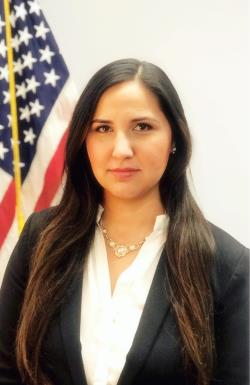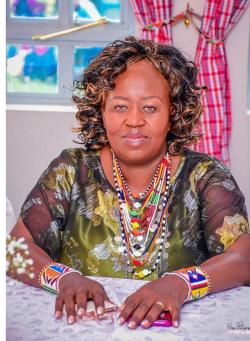Leveraging Multistakeholder Action to Combat TFGBV through the Global Partnership
National Democratic Institute
Session 237
The Global Partnership for Action on Gender-Based Online Harassment and Abuse (Global Partnership) is using a multistakeholder, values-by-design process to counter the global threat of tech-facilitated gender-based violence (TFGBV). The threat or lived experience of being targeted by online violence creates a chilling effect on women’s participation online, especially in political contexts such as politics, activism, and journalism. To varying degrees, governments, technology platforms, and CSOs around the world have been working over the last several years to create safer spaces for women to engage online. This multistakeholder, survivor-centered effort to counter TFGBV incorporates member governments (including the United States, United Kingdom, Australia, and Kenya) as well as civil society and academia to identify ways to build lasting legal frameworks and community-based action-based solutions to TFGBV.
The National Democratic Institute was asked by the Global Partnership to lead a series of consultations and to convene a 2.5 day conference in Nairobi, Kenya on preventing and disrupting the spread of gendered disinformation in the context of electoral processes and democratic rollback. The conference brought together pro-equality and pro-democratic actors from multiple disciplines and sectors and was designed to facilitate open, cross-disciplinary conversation, build relationships, inform common understanding of gendered disinformation (GD), and to workshop solutions. The outcomes of the discussions around these two objectives are detailed in the conference report. The report outlines key themes as well as specific recommendations for governments, donors, and civil society (with funding and support) for addressing gendered disinformation in the context of elections.

Moira Whelan is the director of the Democracy and Technology team at the National Democratic Institute. She brings a wealth of experience to the Institute bridging the gaps between technology, policy, and democracy and is a regular contributor to the global conversation around strengthening the information integrity space and fostering a digital ecosystem that supports democracy worldwide. She is a trailblazer championing the end of tech-facilitated gender-based violence, uniting survivors, policymakers, governments, and the private sector in the fight for a secure, inclusive, and accessible digital ecosystem that bolsters democratic resilience. She is a career communications professional, having served as the U.S. State Department’s Deputy Assistant Secretary for Digital Strategy, Deputy Assistant Administrator for Public Affairs at the U.S. Agency for International Development, and roles at the Department of Homeland Security. In each role, Moira spearheaded the early adoption of technology tools and helped build an information space that enhanced transparency and accessibility. She was a founding partner in BlueDot Strategies where she advised technology companies and worked with nonprofits in using digital tools to enhance citizen engagement. Early in her career, she was a founding staff member of the National Security Network, an advocacy organization dedicated to progressive national security principles. Prior to that, she held senior communications roles at Harvard University’s Belfer Center for Science and International Affairs and on the House Committee on Homeland Security Democratic Staff. Moira started her career in editorial and legislative outreach roles at the Center for Strategic and International Studies (CSIS).
Moira is a graduate of Regis University in Denver, Colorado, and completed her coursework for a master’s degree in international relations at Old Dominion University. Moira is a member of the Council on Foreign Relations and a non-resident Senior Fellow at the Atlantic Council’s Digital Forensics Lab.

Niki Masghati is a senior Internet freedom policy officer in the bureau of Democracy, Human Rights, and Labor.

Rosie Seville is head of the Digital, Tech and Intellectual Property team at the UK Mission to the UN and International Organisations in Geneva. She has a background in policy and diplomacy roles focus on technology, trade and international development, and has previously advised the UK government on aid programmes supporting the development of standards and quality infrastructure.

Representative of Kenya at the Global Partnership for Action on Gender-Based Online Harassment and Abuse
Juliana is a public policy analyst with an illustrious career in the public service with a wealth of experience in
public administration and governance, and understanding of National Policies’ imperatives and
priorities. Spearheading policy interventions to end technology facilitated gender-based violence in
Kenya.
-
 C4. Capacity building
C4. Capacity building
-
 C11. International and regional cooperation
C11. International and regional cooperation
-
 Goal 5: Achieve gender equality and empower all women and girls
Goal 5: Achieve gender equality and empower all women and girls
-
 Goal 17: Revitalize the global partnership for sustainable development
Goal 17: Revitalize the global partnership for sustainable development